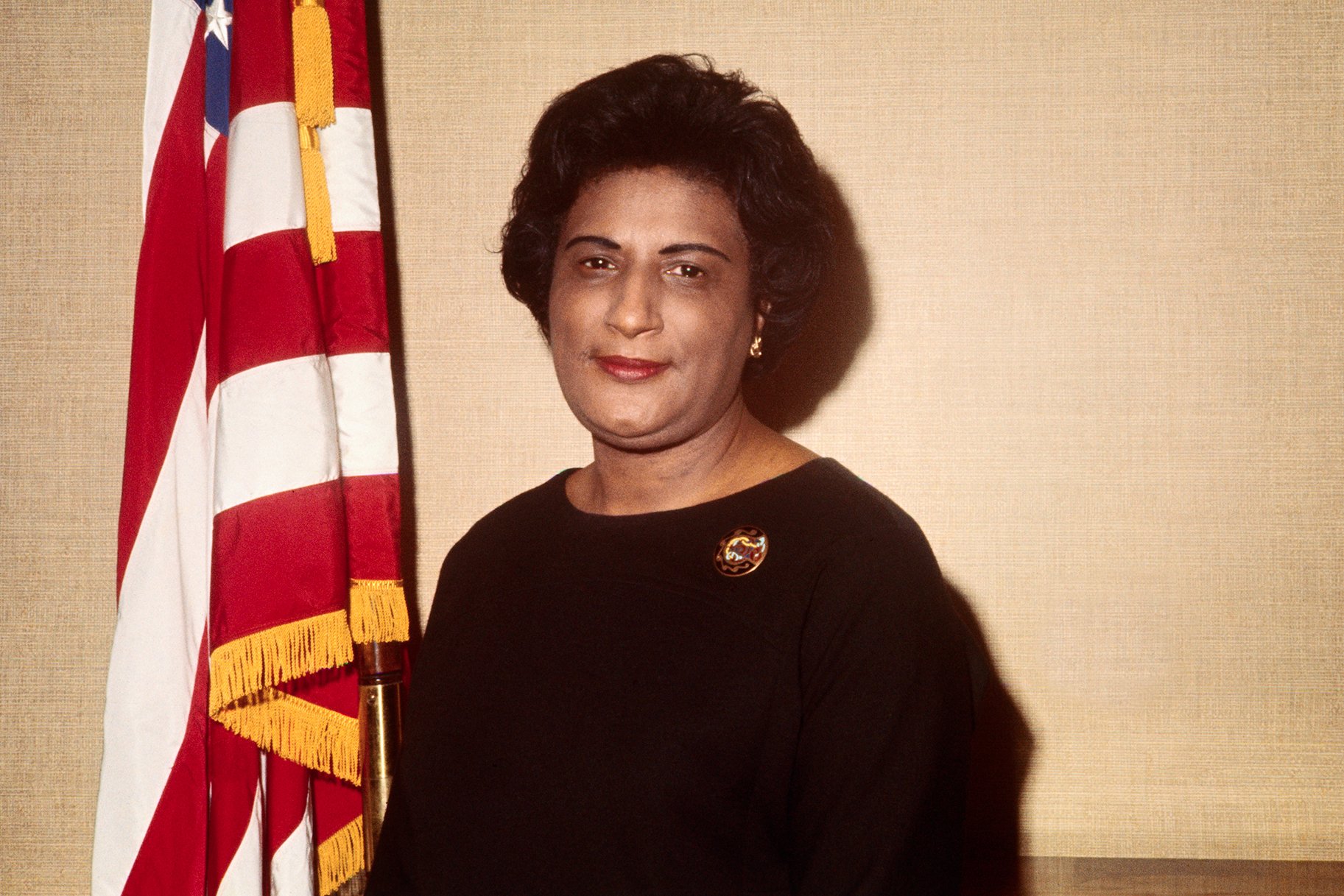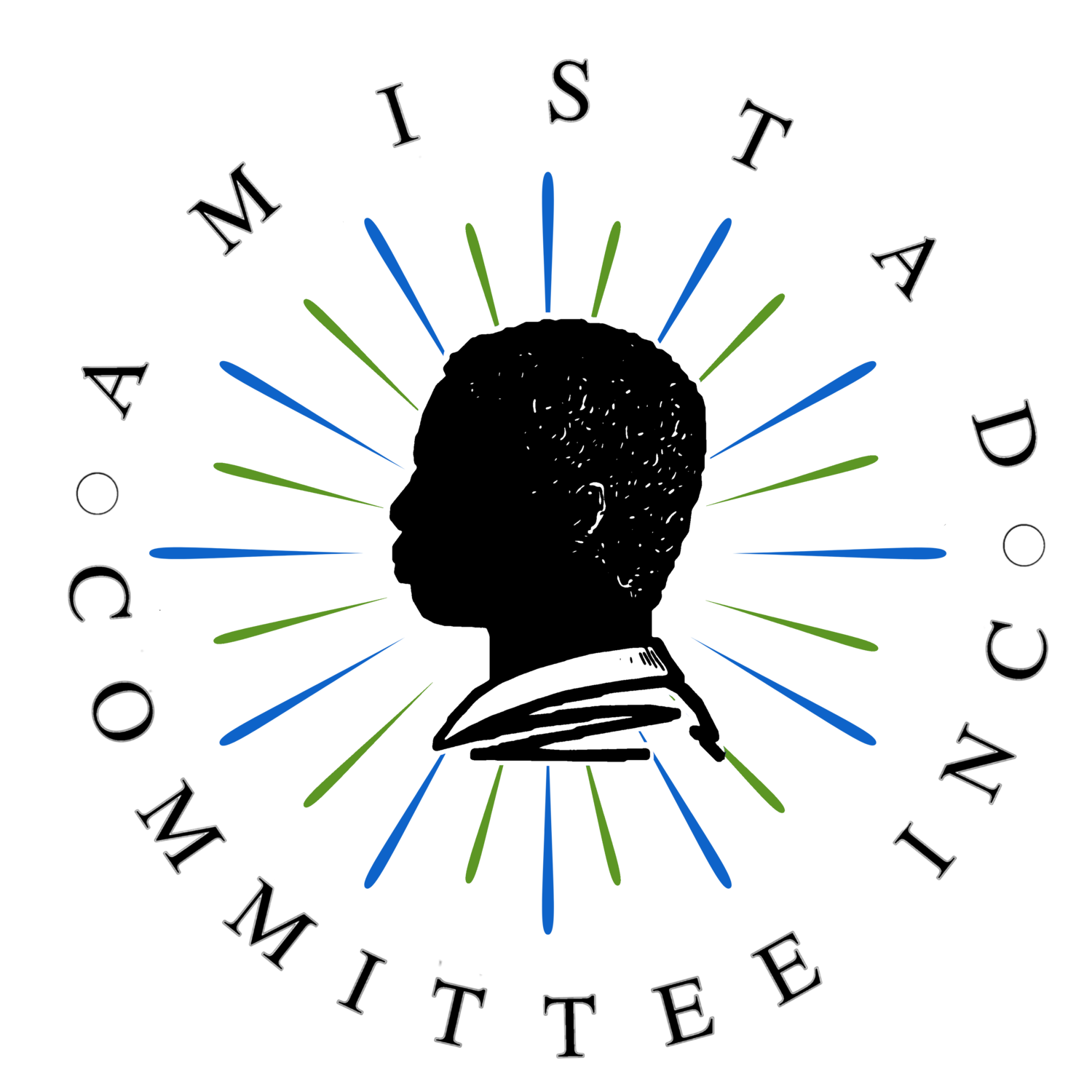
CONSTANCE BAKER MOTLEY
Constance Baker Motley was an American jurist and politician, who served as a Judge of the United States District Court for the Southern District of New York. Wikipedia
For the 2023/’24 Toni N. Harp Human Rights Day Essay Contest, New Haven public high school students were invited to write an essay reflecting their ideas, interests, and insight on the life and contributions of judge Constance Baker Motley (Hillhouse High School class of 1939) to human and civil rights, while also drawing connections between the Universal Declaration of Human Rights to present-day issues such as the political turmoil in Gaza, Congo, and other places, the critical race theory debate, housing inequity, police brutality, and/or other human rights issues impacting their community.
-
Hillhouse High School and Constance Baker Motley
First stop on the Dixwell Walking Tour audio tour created by students from Metropolitan Business AcademyConstance Baker Motley: Judiciary’s Unsung Rights Hero | United States Courts, February 20, 2020
The Life and Legacy of Constance Baker Motley | NAACP Legal Defense Fund
-
The Trials of Constance Baker Motley
NAACP Legal Defense Fund FB page
Documentary video with an introduction by Sherrilyn Ifill.Constance Baker Motley: A Warrior for Justice
Andy Piascik, ConnecticutHistory.orgConstance Baker Motley | National Visionary Leadership Project
An interview with Constance Baker Motley consisting of 11 short video subjects, including “My Childhood,” “The March on Washington,” and “My Advice to Young African Americans.”Fred Aman presents interviews with Judges Motley and Tuttle
In 1988, Professor Fred Aman did several days of video interviews with two very influential figures during the Civil Rights revolution of the 1960’s and beyond: Judge Elbert Parr Tuttle, for whom Professor Aman had clerked, and Constance Baker Motley, a major litigator for the NAACP and one of the key architects of the litigation strategies that ultimately culminated in Brown v. Board of Education.Tomiko Brown-Nagin on 'Judge Constance Baker Motley and Social Activism in the American Century'
On the occasion of her appointment as the Daniel P.S. Paul Professor of Constitutional Law, Professor Tomiko Brown-Nagin delivered a chair lecture titled "On Being First: Judge Constance Baker Motley and Social Activism in the American Century." In addition to her professorship at HLS, Brown-Nagin is co-director of the school's Program on Law and History, as well as a professor of history in the Faculty of Arts and Sciences at Harvard University.Tomiko Brown-Nagin discusses her new book about Judge Constance Baker Motley
Washington Post Live, Streamed live on Feb 10, 2022
Tomiko Brown-Nagin, discusses her new book, Civil Rights Queen: Constance Baker Motley and the Struggle for Equality, in our continuing series about the role of Black women in the country’s history.Lessons Learned from the Life of Constance Baker Motley: A Conversation with Dean Tomiko Brown-Nagin
The Law Librarian of Congress Aslihan Bulut interviews Dean Tomiko Brown-Nagin about her book, Civil Rights Queen: Constance Baker Motley And The Struggle For Equality, and the lessons learned from Constance Baker Motley’s life and work as a civil rights attorney; the first African American, female federal district court judge; and the first African American, female New York state senator."Civil Rights Queen" - A Conversation With Tomiko Brown-Nagin
Connecticut Bar Foundation’s Constance Baker Motley Speaker Series on Racial InequalityTomiko Brown-Nagin Civil Rights Queen: Constance Baker Motley and the Struggle for Equality
Roosevelt House is proud to present a discussion of the new book Civil Rights Queen: Constance Baker Motley and the Struggle for Equality by Tomiko Brown-Nagin. The author is be in conversation with Hunter College Professor of History D’Weston Haywood. Opening remarks from Joel Motley, son of Constance Baker Motely, and Harold Holzer, Director of Roosevelt House. -
Motley, Constance Baker. Equal Justice Under Law: An Autobiography. New York: Farrar, Straus, and Giroux. 1998.
Brown-Nagin, Tomiko. Civil Rights Queen. New York: Pantheon Books. 2022.
CONSTANCE BAKER-MOTLEY FACTS:
● Judge Constance Baker Motley was born in New Haven, CT on September 14, 1921, growing up at 52 Dickerman Street in New Haven
● She graduated from Hillhouse High School in 1939.
● When Judge Motley was a 15 year old high school student at Hillhouse, she won honorable mention for her poem entitled, “Listen, Lord- from the Slums”. She decided to become a lawyer after learning about Jane Bolín the first black woman to graduate from Yale Law School and came to the notice of George Crawford (a New Haven black lawyer).
● In December 1940 following her graduation, Clarence W. Blakeslee (founder, builder and board president of the Q House) called a meeting with the community to learn why “people were not using it in the way he had anticipated” (CBM Equal Justice Under Law) since it was for the “colored citizens of New Haven”.
● As the president of the New Haven Negro Youth Council, (founded to “do something about youth-unemployment problems and local race discrimination in employment”) Constance Baker spoke up and stated that the board was dominated by Yale and the black community had no input. The next day the Q House director called her to let her know Mr. Blakeslee wanted to meet her. At the meeting he told her how much she had impressed him and offered to pay her tuition and expenses for undergrad and law school at Columbia.
● After undergrad at Fisk University for 1 year, NYU (BA; 1943) and Columbia University (LLB ; 1946), her first job was with the NAACP Legal Defense Fund arguing several cases before the US Supreme Court, and contributing to the arguments in Brown vs the Board of Education.
● As a member of the NAACP Legal Defense Fund she argued her first case in Jackson, Mississippi in 1949, representing black school teachers appeal for equal pay; opposing council refused to address her as Mrs. Motley.
● She wrote the first brief for the Brown vs Board of Education case while she was pregnant with her son Joel Motley III and while he was a toddler.
● Argued and won 9 of 10 cases at the US Supreme Court.
● 1961: She argues the case James Meredith vs Ole Miss (University of Mississippi), & the case that sent Charlayne Hunter Gault to the University of Georgia.
● Represented Rev. Dr. Martin Luther King, Freedom Riders and local students during the Birmingham bus boycott.
● 1964: 1st Black woman elected New York state senator
● 1965: Elected Manhattan Borough President; both the first woman and first black person elected to this position (opposed by Malcolm X & Adam Clayton Powell).
● 1965: Constance and Joel Motley purchased their home in Chester CT for use on holidays, weekends, family reunions.
● 1966: 1st Black woman appointed to Southern District of NY US District Court judge appointed by President Lyndon Johnson (opposed by US Senator James Eastland, who accused her of being a Communist due to her early organizing in New Haven and later Civil Rights advocacy).
● Senior Judge of Southern District of NY US District Court 1986-2005.
● Judge Motley died September 28, 2005 in New York.
● In February 2024, Constance Baker-Motley was featured on the 47th U.S. Postal Service Black Heritage stamp



